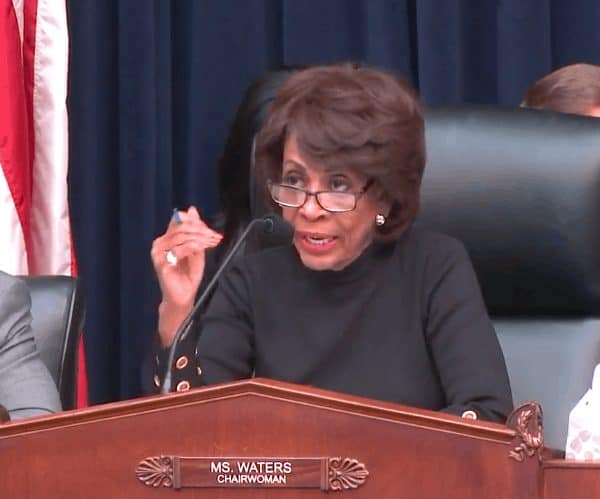The House Committee on Financial Services will hold the first of three hearings on the Gamestop – Robinhood saga that saw hedge fund short sellers compelled to sell positions in a short squeeze driven by collaborative trading that was organized on Reddit.
Entitled, “Game Stopped? Who Wins and Loses When Short Sellers, Social Media, and Retail Investors Collide,” the hearing will include testimony from Robinhood CEO Vlad Tenev as well as Executives from Citadel, Reddit, and Melvin Capital. Keith Gill, active on the subreddit Wallstreetbets and known by his handles like DeepFuckingValue and Roaring Kitty, will also participate.
Recently added was Jennifer Schulp, Director of Financial Regulation Studies at Cato Institute.
In advance of the hearing, scheduled to kick off tomorrow (February 18, 2020), beginning at 12 noon, several witnesses have posted prepared testimony in advance of the hearing.
Tenev says that Robinhood has changed the investing world for the better by removing traditional barriers to millions of retail investors.
Tenev states:
“Our rapid growth has confirmed that retail investors were waiting for the right platform to help them enter the markets. We have over 13 million customers, and we are seeing new customers open accounts every day to take part in our financial markets. Robinhood Financial’s customers trade thousands of stocks and ETFs, as well as options and cryptocurrency—all with zero commissions and no account minimums.”
During the height of the Gamestop craze, Robinhood decided to pause on purchases of the shares. Tenev explains:
“… on January 28, the NSCC sent Robinhood Securities an automated notice stating that Robinhood Securities had a deposit deficit of approximately $3 billion. That deficit included a substantial increase in Robinhood Securities’ VaR-based deposit requirement to nearly $1.3 billion (up from $696 million), along with an “excess capital premium charge” of over $2.2 billion. SEC rules prescribe the amount of regulatory net capital that Robinhood Securities must have, and on January 28 the amount of the NSCC VaR charge exceeded the amount of net capital at Robinhood Securities, including the excess net capital maintained by the firm. Under NSCC rules, this triggered a special assessment—the “excess capital premium charge.” In total, the NSCC automated notice indicated that Robinhood Securities owed NSCC a total clearing fund deposit of approximately $3.7 billion. Robinhood Securities had approximately $696 million already on deposit with NSCC, so the net amount due was approximately $3 billion.”
Tenev says they worked hard to remove trading restrictions. In light of events, Tenev believes that a transition to real-time settlements would address part of the challenge and its time for “the financial system to catch up.”
Gabriel Plotkin, founder and Chief Investment Officer at Melvin Capital Management, one of the impacted short sellers – lost money on behalf of its investors as shares in Gamestop went from $17 to $483.
“When this frenzy began, Melvin started closing out its position in GameStop at a loss, not because our investment thesis had changed but because something unprecedented was happening. We also reduced many other Melvin positions at significant losses – both long and short – that were the subject of similar posts … I am personally humbled by what happened…”
Keith Gill says that while Gamestop was ultimately a good investment, he did not solicit anyone to buy or sell the stock for his own profit and did not belong to any groups trying to create movements in the stock price.
“The idea that I used social media to promote GameStop stock to unwitting investors is preposterous. I was abundantly clear that my channel was for educational purposes only, and that my aggressive style of investing was unlikely to be suitable for most folks checking out the channel. Whether other individual investors bought the stock was irrelevant to my thesis – my focus was on the fundamentals of the business.”
Schulp adds a voice of reason to the discussion as she notes that “it is difficult to analyze the impact of the trading in GameStop and other stocks because many facts remain unknown at this time.” While much of the discussion has focused on retail some observers believe that institutional money drove a good portion of the trading action.
Schulp adds that “the temporary volatility in GameStop and others did not present a systemic risk to the functioning of our markets.” She states:
“By no means, though, should the GameStop phenomenon result in changes that restrict retail investors’ access to the markets. Reintroducing undue barriers to participation that have been removed, or introducing new restrictions, has the potential to undo the benefits of wider retail participation in our equities markets.”
 During a discussion on CNBC today, Maxine Waters, Chairwoman of the House Financial Services Committee, said this is just one of three hearings planned going forward.
During a discussion on CNBC today, Maxine Waters, Chairwoman of the House Financial Services Committee, said this is just one of three hearings planned going forward.
While saying she has no preconceived notions and she just wants to learn what role did each party play there is always the chance that more regulation could be on the way.
Chair Waters said that following this initial hearing, the next will include “experts” in the sector with the third hearing to determine who did what and if legislation will need to be crafted.
The hearing tomorrow should be very well attended. It will be live-streamed on the Committee’s website and open to the public.


